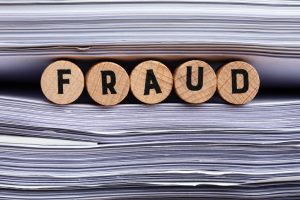 A postdoctoral research staff member discovered the fraud and filed a whistleblower lawsuit under the qui tam provisions of the False Claims Act.
A postdoctoral research staff member discovered the fraud and filed a whistleblower lawsuit under the qui tam provisions of the False Claims Act.
New York City public university Hunter College and the former director of its HIV studies center have agreed to pay a combined $575,000 to settle allegations they violated the False Claims Act by knowingly misusing National Institutes of Health (NIH) grant funding while falsely certifying their compliance with federal requirements.
The case, initiated by a qui tam whistleblower, alleged that former Hunter psychology professor Jeffrey Parsons-Hietikko improperly diverted tens of thousands of dollars in NIH grant funds to pay for personal expenses and to compensate HIV studies center staff for unrelated projects.
 The Whistleblower & Anti-Fraud Blog
The Whistleblower & Anti-Fraud Blog


 th Korean conglomerate
th Korean conglomerate  The technology firm was found to have knowingly included false pricing, rebate, and discount information in disclosures to become a GSA Schedule contractor.
The technology firm was found to have knowingly included false pricing, rebate, and discount information in disclosures to become a GSA Schedule contractor. International Vitamin Corp. allegedly violated the False Claims Act by misclassifying imports from China as “duty free.”
International Vitamin Corp. allegedly violated the False Claims Act by misclassifying imports from China as “duty free.” The hiring of the subcontractors by Vescent Photonics allegedly violated conditions on the use of Small Business Innovation Research (SBIR) grant funding.
The hiring of the subcontractors by Vescent Photonics allegedly violated conditions on the use of Small Business Innovation Research (SBIR) grant funding. High Life LLC allegedly reported phony “first sale” prices on import declarations filed with CBP.
High Life LLC allegedly reported phony “first sale” prices on import declarations filed with CBP. The fraud was discovered by a medical office manager who filed a whistleblower lawsuit under the qui tam provisions of the False Claims Act.
The fraud was discovered by a medical office manager who filed a whistleblower lawsuit under the qui tam provisions of the False Claims Act.
 Contractor previously paid $5.6 million to resolve allegations it improperly sourced tungsten cubes from China instead of the United States for high-explosive tank rounds sold to Israel.
Contractor previously paid $5.6 million to resolve allegations it improperly sourced tungsten cubes from China instead of the United States for high-explosive tank rounds sold to Israel.